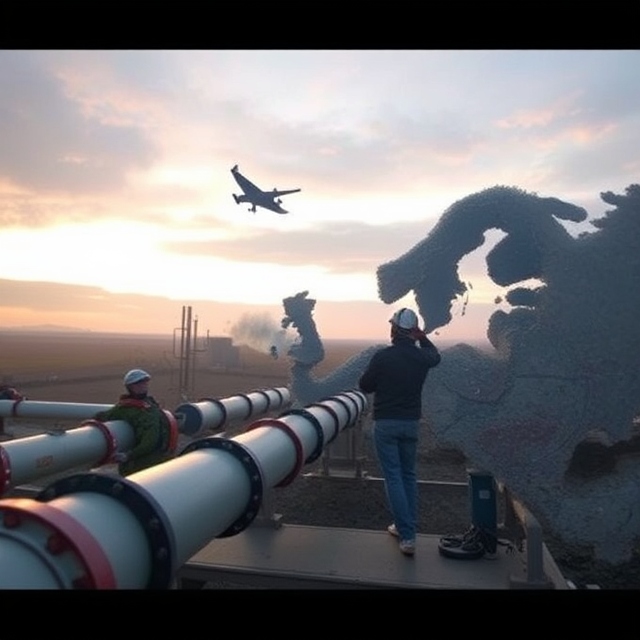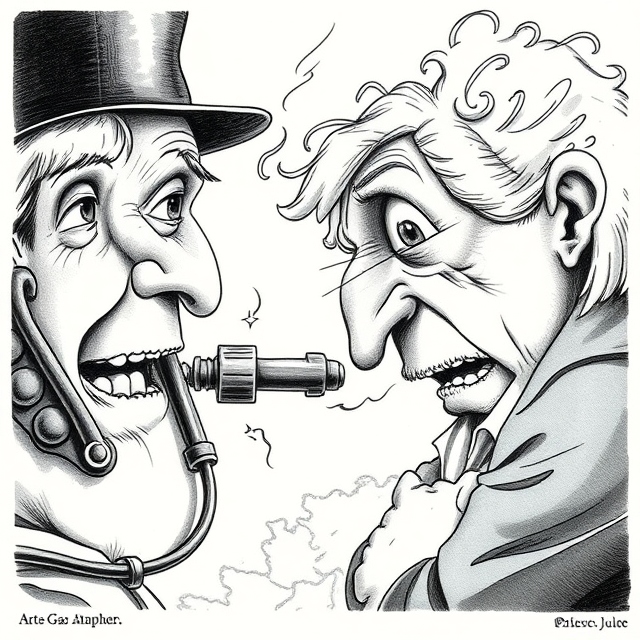
Qatar’s Warning: Qatar’s Energy Minister threatened to halt gas exports to Europe if the EU’s sustainability laws penalize Qatari companies, highlighting potential economic losses and geopolitical tensions.
Energy Security Risks: Europe relies on Qatar for 12–14% of its LNG supply. A supply cut could deepen the energy crisis, forcing Europe to explore costlier or unstable alternatives.
Regulatory Tensions: The EU’s Corporate Sustainability Due Diligence Directive faces criticism for potentially straining relations with energy partners like Qatar, creating global investment challenges, and intensifying energy supply vulnerabilities.
In a sharp warning that has sent shockwaves through global energy markets, Qatar’s Energy Minister, Saad Sherida al-Kaabi, declared that Qatar would halt its gas exports to Europe if the European Union enforces penalties on Qatari companies under its newly adopted sustainability due diligence laws. “I’m not bluffing,” al-Kaabi warned in a recent interview, pointing out that if Qatar loses even 5 percent of its annual revenue due to these penalties, the country would stop supplying gas to the EU altogether. This could spell trouble for Europe, which is already facing an energy crisis exacerbated by the ongoing conflict in Ukraine and a need to reduce reliance on Russian energy sources.

The EU’s Corporate Sustainability Due Diligence Directive, passed earlier this year, requires companies to ensure their supply chains are free from forced labor and environmental harm. Non-compliance with these rigorous standards can result in hefty fines of up to 5 percent of a company’s global revenue. For Qatar, this could translate to a loss of billions of dollars, an outcome the energy-rich nation is unwilling to entertain.
Qatar, now the third-largest global exporter of liquefied natural gas (LNG), has become a key supplier of gas to Europe, providing roughly 12–14 percent of the continent’s LNG needs in recent years. This significant contribution has helped Europe navigate the loss of Russian energy supplies following the war in Ukraine. However, the EU’s due diligence laws could disrupt this delicate balance, straining relationships with critical partners like Qatar, which is trying to diversify its markets and strengthen its ties to Asia and Europe alike.

For Europe, the risks are immense. Qatar’s potential withdrawal from gas exports would deal a blow to the EU’s already fragile energy security. European nations like Germany, France, and the Netherlands rely on long-term contracts with QatarEnergy, the state-run oil giant, to meet a substantial portion of their natural gas needs. Losing this supply could force Europe into further dependence on more volatile sources or increasingly expensive alternatives, plunging the continent into an even deeper energy crisis.
Moreover, Qatar’s stance highlights the broader tension between global economic interests and Europe’s growing ambition to lead in environmental and human rights governance. While the EU aims to hold businesses to higher standards through its due diligence framework, the law’s application to foreign companies like QatarEnergy may backfire. Beyond Qatar, many businesses have expressed concern over the regulatory burden this directive creates, claiming it could harm Europe’s attractiveness as a hub for global investment and potentially place EU companies at a competitive disadvantage compared to their counterparts in other regions.
From a geopolitical perspective, this standoff has global ramifications. If other energy suppliers follow Qatar’s lead, Europe may find itself under the threat of energy shortages, pushing prices skyward and creating ripple effects worldwide. Furthermore, it underscores the ongoing tension between the EU’s regulatory ambitions and the economic realities of countries like Qatar, which operate within different political and financial systems, highlighting the complexities of imposing uniform standards across international borders.
As the situation unfolds, both Qatar and the EU must consider the broader implications of their policies. While the EU’s vision of a sustainable future is admirable, it must also weigh the economic and diplomatic risks associated with enforcing such stringent rules on global trade partners. The world is watching closely to see how this issue will evolve—an energy crisis or a breakthrough in corporate governance could be on the horizon, depending on how both sides manage the negotiation.
References:
- Peseckyte, G. (2024, December 23). Qatar warns it will halt gas supplies to Europe if fined under EU due diligence law. POLITICO. https://www.politico.eu/article/qatar-warned-to-halt-eu-gas-supplies-if-fined-under-due-diligence-law/
- Business Standard. (2024, December 23). Qatar to stop EU gas sales if fined under due diligence law: Report. www.business-standard.com. https://www.business-standard.com/world-news/qatar-to-stop-eu-gas-sales-if-fined-under-due-diligence-law-report-124122300870_1.html
Shobhil Shrivastava is a postgraduate student specializing in Diplomacy, Law, and Business at O.P. Jindal Global University. His academic focus spans International Relations, Geopolitics, Defence, and Security. Views expressed are the author’s own.
